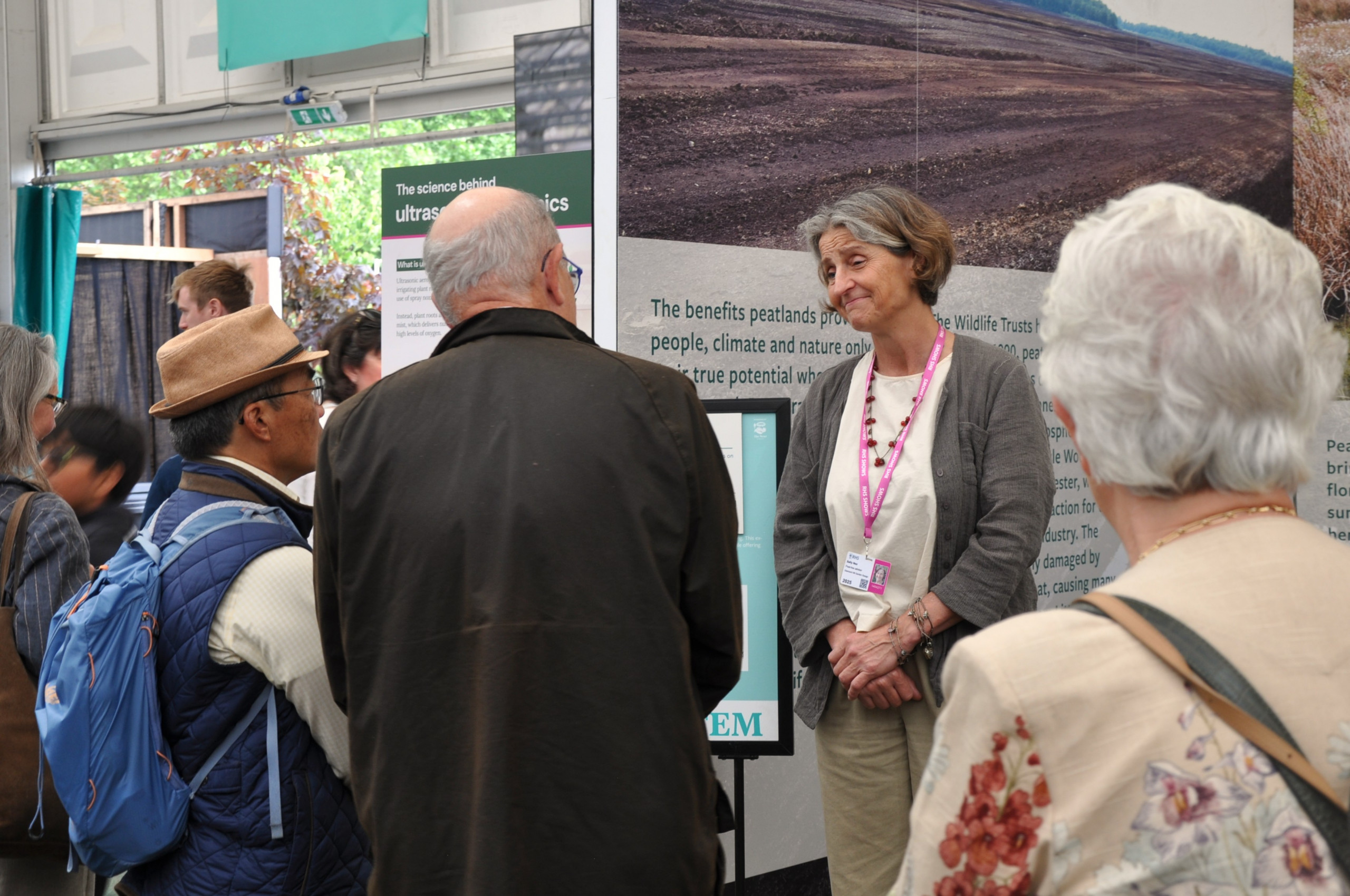The Peat-free Partnership calls for legislation that:
- Ends the sale and supply of peat in horticulture;
- Makes provisions for horticultural businesses to transition to peat-free alternatives, no longer than 2 years (and in very limited circumstances up to 5 years) after legislation is enacted;
- Makes provisions for continued minimal use of peat for conservation and other scientific purposes under licence in very limited circumstances where no viable alternatives are available.
The legislation we seek is quite simple: we need to eliminate peat from UK horticulture as rapidly as possible in response to the climate and nature emergencies. The environmental importance of eliminating the use of peat in horticulture is well-established (i); voluntary measures have reduced peat use, but not at the scale and pace that is needed (ii),
Our proposition is based on the concept of a fair transition, striking a balance between the needs of the horticultural industry to adjust and the urgency to bring an end to the damage caused by peat extraction from peatlands both here and elsewhere in Europe.
Read on for further explanation – you can click here to download our legislative asks as a PDF.
End the retail sale and supply of bagged peat within six months of legislation coming into force.
Effective alternatives to peat-based growing media are widely available and the market has already made a substantial shift to peat-free bagged compost and many plants are now produced without using peat. But this transition largely stalled when the prospect of legislation at Westminster became tinged with uncertainty (iii). The market currently comprises a mix of products, some continuing to contain peat. Legislation would prohibit the sale and supply of peat. In practice, this is likely to mean within six months of legislation coming into force.
Include provision for commercial horticultural businesses to transition to peat-free alternatives
This provision allows time for a fair, phased transition for businesses to adjust their operational practices, to undertake trials and where necessary to reskill their workforce and upgrade equipment to use alternatives to peat. Dozens of horticultural businesses have already demonstrated that this is achievable. The legislation would include provisions for a general exemption from the prohibition of peat sale and supply for all commercial growers; this exemption would end two years from the date the legislation comes into force.
We accept that a limited number of horticultural products may require more time for commercial enterprises to undertake necessary research and development to find viable peat-free alternatives. Products meeting this criterion will be specified in a schedule and exempted from the prohibition of peat sale and supply for a period not exceeding 5 years from the date the legislation comes into force.
Include provision for permanent exemption under licence for institutions to obtain peat for essential plant conservation purposes.
We recognise that the continued use of limited amounts of peat may be required to maintain ex situ populations of certain endangered plant species. These species will be specified in a schedule; institutions will be licenced for exemption from the general provisions which prohibit peat sale and supply. The schedule will be reviewed periodically to ensure the licenced exemption continues to be justified.
Endnotes
(i) For example, as set out by P.D. Alexander et al in ‘Peat in horticulture and conservation: the UK response to a changing world’ (Mires and Peat 3, 08 (2008) [https://www.mires-and-peat.net/article/128260-peat-in-horticulture-and-conservation-the-uk-response-to-a-changing-world]
(ii) DEFRA Press Release published 27 August 2022 ‘Sale of horticultural peat to be banned in move to protect England’s precious peatlands’ [https://www.gov.uk/government/news/sale-of-horticultural-peat-to-be-banned-in-move-to-protect-englands-precious-peatlands] and Press Office blog posted 24 March 2023 ‘Media reporting on peat-ban for the professional Horticulture sector’ [https://deframedia.blog.gov.uk/2023/03/24/media-reporting-on-peat-ban-for-the-professional-horticulture-sector/]
(iii) While the previous administration’s policy to ban the use of peat in horticultural was clear, implementation was conditional on the availability of Parliamentary time, which failed to materialise. While the public policy signalled an intent to legislate to which commercial suppliers and retailers responded, the failure to progress legislation and, since the change of government in July 2024, the absence of a public policy on horticultural peat has resulted in ‘market hesitation’. Those invested in peat-free horticulture are frustrated at the uneven playing field; some taking steps to transition to peat-free are halting; and some are returning to peat use.
